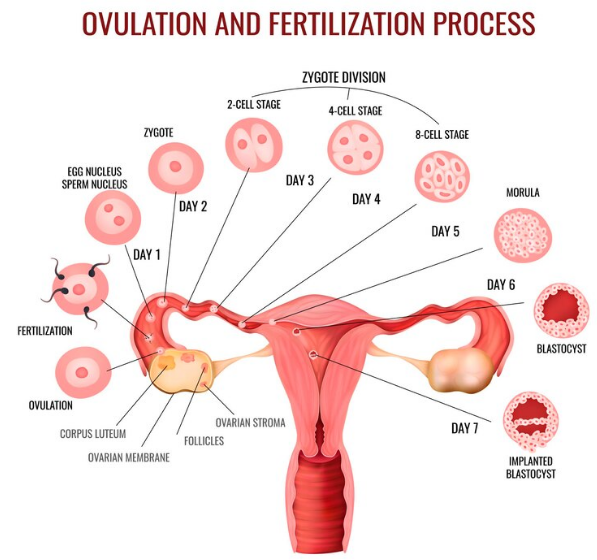Introduction
Embarking on the journey of parenthood is a profound and exciting adventure. As couples prepare for this life-changing experience, the concept of fertility fitness comes into play, emphasizing the pivotal role of lifestyle in achieving optimal fertility. In this article, we will delve into the various facets of fertility fitness, exploring the connection between lifestyle choices and the ability to conceive.
Understanding Fertility Fitness
Fertility fitness is not just a buzzword; it’s a comprehensive approach to enhancing fertility through lifestyle modifications. Understanding the intricacies of this concept involves recognizing the myriad factors that can influence fertility. From age to underlying health conditions, each aspect plays a crucial role.
Table of Contents
The Role of Nutrition
A balanced diet isn’t just essential for overall well-being; it’s a cornerstone of fertility fitness. Specific nutrients, such as folate, zinc, and omega-3 fatty acids, are particularly vital for reproductive health. Incorporating fertility-boosting foods rich in vitamins and minerals is key. Foods high in antioxidants, such as fruits, vegetables, and nuts, can help combat oxidative stress and support reproductive health.
Physical Activity and Fertility
Regular exercise is known for its myriad benefits, and fertility is no exception. However, finding the right balance is key. Excessive exercise can have adverse effects, while a sedentary lifestyle may also impact fertility negatively. Engaging in moderate, consistent physical activity can help regulate hormonal balance and improve blood circulation to reproductive organs. Aim for at least 30 minutes of exercise most days of the week, incorporating a mix of cardiovascular and strength training exercises.
Stress Management for Fertility
The hustle and bustle of modern life often bring stress, which can take a toll on fertility. Chronic stress may disrupt hormonal balance, affecting both male and female reproductive systems. Stress reduction techniques, such as meditation and yoga, can play a pivotal role in creating a conducive environment for conception.
Quality Sleep and Fertility
Quality sleep is a cornerstone of overall health, and its impact on reproductive health is profound. Lack of sleep can disrupt hormonal patterns, affecting reproductive functions. Aim for 7-9 hours of quality sleep each night to support overall well-being and optimize fertility.
Environmental Factors and Fertility
Environmental factors, such as exposure to pollutants and toxins, can impact fertility. Limit exposure to harmful substances in your surroundings and opt for organic products when possible. Creating a clean and safe environment is conducive to a healthy reproductive system.
Avoiding Harmful Habits
Smoking and excessive alcohol consumption are known to have detrimental effects on fertility. Quitting these harmful habits is a proactive step toward enhancing fertility fitness. These lifestyle changes can significantly enhance reproductive health and increase the likelihood of a successful pregnancy.

Fertility Fitness for Men
Men play an equally vital role in fertility. Understanding specific considerations for male fertility and making corresponding lifestyle changes are crucial aspects of fertility fitness.
Fertility Fitness for Women
Women’s reproductive health involves unique considerations. This section will explore the basics of female reproductive health and lifestyle adjustments that can positively impact fertility.
Maintaining a Healthy Weight
Weight can impact fertility, and maintaining a healthy weight is crucial for reproductive health. Both obesity and being underweight can lead to hormonal imbalances that may affect fertility. Take a stab at a fair weight through a blend of a nutritious eating regimen and standard activity.
Fertility Supplements
In addition to a well-balanced diet, consider incorporating fertility supplements that contain essential vitamins and minerals. Folic acid, iron, and omega-3 fatty acids are examples of nutrients that can support reproductive health. Talk with a medical care proficient prior to adding enhancements to your daily schedule.
Holistic Approaches to Fertility Fitness
Approaching fertility fitness holistically involves integrating various aspects discussed earlier. A comprehensive lifestyle transformation often yields the best results.
Seeking Professional Guidance
While lifestyle adjustments are essential, seeking guidance from healthcare professionals, especially fertility specialists, is crucial. They can provide personalized advice and interventions tailored to individual needs.
Tracking Fertility Cycles
Understanding your menstrual cycle and identifying the fertile window is crucial for couples trying to conceive. Utilize ovulation predictor kits and tracking apps to determine the most fertile days, increasing the chances of successful conception.

Success Stories
Real-life success stories serve as inspiration for couples undergoing fertility fitness transformations. These stories highlight the positive impact of lifestyle changes on fertility.
Challenges and Solutions
Adopting a fertility fitness lifestyle may come with its challenges. Identifying common hurdles and providing practical solutions can empower individuals on this journey.
Conclusion
Embarking on the path to parenthood is a transformative experience, and optimizing your fertility fitness can significantly contribute to the journey. By making informed lifestyle choices, from maintaining a balanced diet to managing stress and incorporating regular exercise, you pave the way for a healthier reproductive system. Remember, the key lies in consistency and dedication to a fertility-focused lifestyle. Take proactive steps, consult with healthcare professionals when needed, and embrace the exciting possibilities that come with a fertility-enhancing journey. Your path to parenthood begins with a commitment to fertility fitness.
- you might be interested in reading this post as well

10 Proven Benefits of Bananas for Health and Well-being
Bananas are known for their natural sweetness, ease of peeling and rich nutrition. This makes them one of the most commonly consumed fruits in the world. Though bananas originated in

Disease X: The Next Pandemic?
Emerging infectious diseases pose one of the greatest threats to human health and global stability. One of them, “Disease X” has intrigued scientists and WHO, as it represents the potential

The Remarkable Benefits of Eating Acorn Squash in Winter
Acorn squash has all the qualities that make it special. Winter calls for warmth, comfort, and nutrition, and acorn squash provides all of these. This vegetable is not just delicious
Frequently Asked Questions (FAQ’s)
Q.1 How long does it take to see results with fertility fitness?
Ans. Fertility fitness is a gradual process, and results may vary. Consistency in adopting lifestyle changes is key.
Q.2 Are fertility specialists only for couples facing fertility issues?
Ans. Fertility specialists can provide guidance for all individuals interested in optimizing their fertility, not just those facing challenges.
Q.3 Can fertility fitness help with age-related fertility decline?
Ans. While age is a factor, adopting a fertility fitness lifestyle can still have positive effects on reproductive health.
Q.4 Are there specific diets recommended for fertility fitness?
Ans. A balanced diet rich in nutrients is generally recommended, but consulting with a nutritionist for personalized advice is beneficial.
Q.5 Is fertility fitness only for couples planning to conceive?
Ans. Fertility fitness is beneficial for anyone interested in optimizing their reproductive health, whether planning for a family or not.
